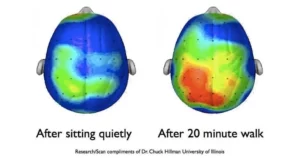EXERCISE AND MOOD
Exercise not only changes your body. It changes your mind, your attitude and your mood
We all have days where we plan to do our workouts and we know we should however when it’s time to put your shoes on and go… You simply just don’t want to go.
How many times have you said this to yourself?
- I don’t feel like exercising
- I’m too tired to exercise
- I’ve lost my motivation to exercise
- I’m not in the mood to exercise
What if we told you that exercise is not just about burning calories, regular exercise plays a vital role in cognitive function and mental acuity which helps support a positive outlook on life.
What we know about Exercise and Mood
Research has long supported the benefits of exercise, from weight control to reducing the risks of cardiovascular disease, type 2 diabetes, and even cancer. Regular exercise strengthens our muscles, bones, increases your flexibility and helps you stay fit and active for longer.
What can exercise do for my mood? Exercise can have an enormous impact on your mood. In fact, it is thought that exercise can be just as effective as anti-depressants in treating mild-to-moderate depression.
What we do know is:
- Exercise can help treat people with depression who have partially responded to anti-depressants
- both aerobic exercise (such as walking, cycling or running) and strength training (such as weight lifting) can help treat depression
- Improved mood
- Improved self-esteem
- Reduced stress as well as an improved ability to cope with stress
- Improved confidence in your physical abilities
- Builds your coping and resilience
- Can help distract from negative thoughts
- Gives you a sense of accomplishment
Exercise and Depression
As mentioned previously, studies show that exercise can treat mild to moderate depression as effectively as antidepressant medication a recent study done by the Harvard T.H. Chan School of Public Health found that running for 15 minutes a day or walking for an hour reduces the risk of major depression by 26%. In addition to relieving depression symptoms, research also shows that maintaining an exercise schedule can prevent you from relapsing.
Exercise and Anxiety
Exercise is a natural and effective anti-anxiety treatment. It relieves tension and stress, boosts physical and mental energy, and enhances well-being through the release of endorphins. A systematic review by Aylett, E., Small, N. & Bower, 2018 assessed the use of exercise versus waiting list control groups in the treatment of anxiety and also the benefit of high intensity exercise vs low intensity exercise. The intervention was any aerobic exercise programme carried out for at least two weeks, and the comparison groups were either a waiting list control group or low intensity exercise (stretching/walking). This study concluded that higher intensity exercise have an advantage over lower intensity exercise in bringing about an improvement in anxiety scores. The study also confirmed that exercise represents an effective treatment and should be more available for referral from General Practice.
Exercise and Stress
Studies have found that stress contributes to 50% of all illnesses and that two-thirds of GP visits were for stress-related illnesses. Wang, C., Chan, C.H., Ho, R.T. et al. 2014 conducted a systematic review that assessed examining the effect of exercise on stress reduction or anxiety relief among healthy adult and found that exercise does in fact relieve anxiety and reduce stress. There is a great number of studies that have typically focused on aerobic exercises. There have been consistent findings that people report feeling calmer after a 20- to 30-minutes of aerobic exercise, and the calming effect can last for several hours after exercise.
Exercise and Enhancing Brain Function
Exercise also plays a vital role in improving brain function as it leads to increased blood flow and oxygen to the brain. Exercise can help generate new nerve cells and improve cognition, memory and learning. Regular exercises can even help to prevent Parkinson’s Disease, Stroke and Alzheimer’s Disease (Cotman & Engesser-Cesar, 2002). Brain-derived neurotrophic factor (BDNF) is important in brain function, neuronal transmission, and plasticity (Ferris, Williams & Shen, 2007). This process is known as neurogenesis or neuroplasticity. A study conducted by Ferris et al. (2007), studied BDNF to help confirm the relationship between exercise and brain function. Fifteen participants rode a bicycle for 30 minutes, one ride at moderate intensity. After exercise, BDNF values were increased and intensity dependent which supports the positive effect that exercise can have on brain function.
Are you maximizing your exercise routine? Are you unsure if the exercise you’re doing is right? Are you struggling with motivation to get moving again?
If you’re reading this and think any or all mentioned above sounds familiar, then we can definitely help you. Based on specializing in exercise progressions and exercising ourselves, we can help assess, adjust and progress your routine. Everyone’s needs are different so during our consultation with you, we ensure that we draw on the combination that will best serve you. We strive to ensure our clients are performing exercises correctly and efficiently, in order to maximize results.
So, what are you waiting for? Enquire with us to discuss how we can help you get started and achieve your goals!
If you are in a bad mood go for a walk. If you are still in a bad mood go for another walk.
References
Aylett, E., Small, N. & Bower, P. Exercise in the treatment of clinical anxiety in general practice – a systematic review and meta-analysis. BMC Health Serv Res 18, 559 (2018). https://doi.org/10.1186/s12913-018-3313-5
Wang, C., Chan, C.H., Ho, R.T. et al. Managing stress and anxiety through qigong exercise in healthy adults: a systematic review and meta-analysis of randomized controlled trials. BMC Complement Altern Med 14, 8 (2014). https://doi.org/10.1186/1472-6882-14-8
Cotman, C.W. & Engesser-Cesar, C. (2002). Exercise enhances and protects brain function. Exercise and Sport Sciences Reviews, 30 (2), 75-79.
Ferris, L.T., Williams, J.S., & Shen, C.L. (2007). The effect of acute exercise on serum brain-derived neurotrophic factor levels and cognitive function. Medicine and Science in Sports and Exercise, 39 (4), 728-734.
Hearing, C. M., Chang, W. C., Szuhany, K. L., Deckersbach, T., Nierenberg, A. A., & Sylvia, L. G. (2016). Physical Exercise for Treatment of Mood Disorders: A Critical Review. Current behavioral neuroscience reports, 3(4), 350–359. https://doi.org/10.1007/s40473-016-0089-y
Robertson, R., Robertson, A., Jepson, R., & Maxwell, M. (2012). Walking for depression or depressive symptoms: A systematic review and meta‐analysis. Mental Health and Physical Activity, 5( 1), 66– 75. https://doi.org/10.1016/j.mhpa.2012.03.002





